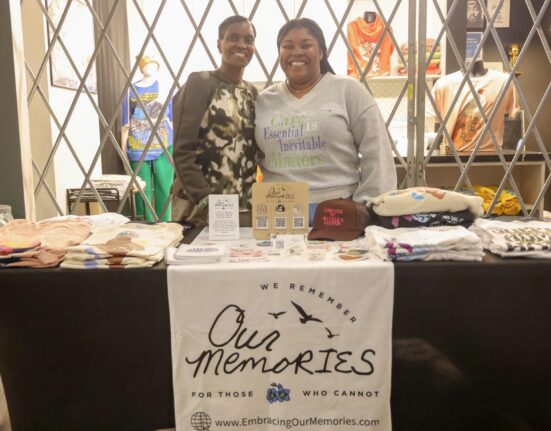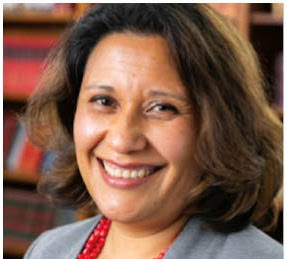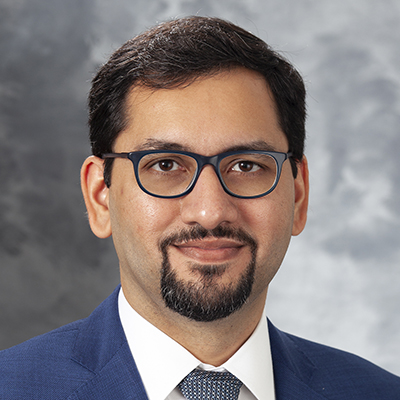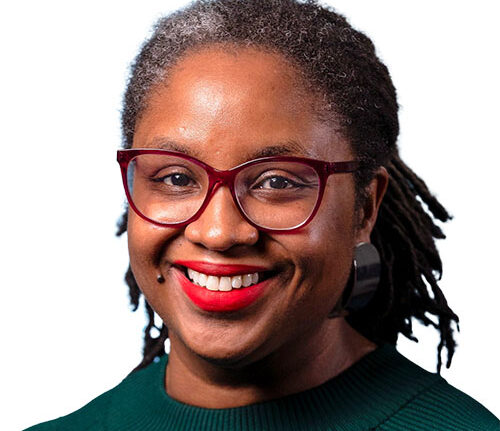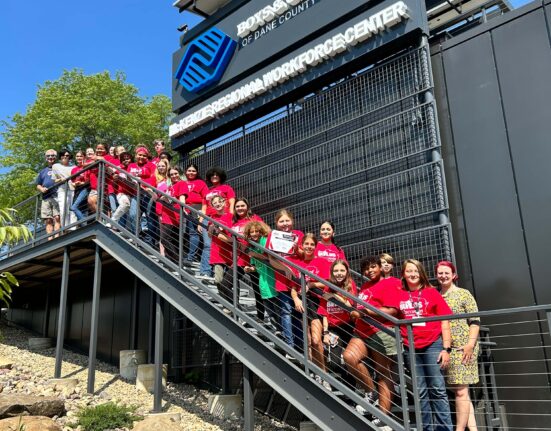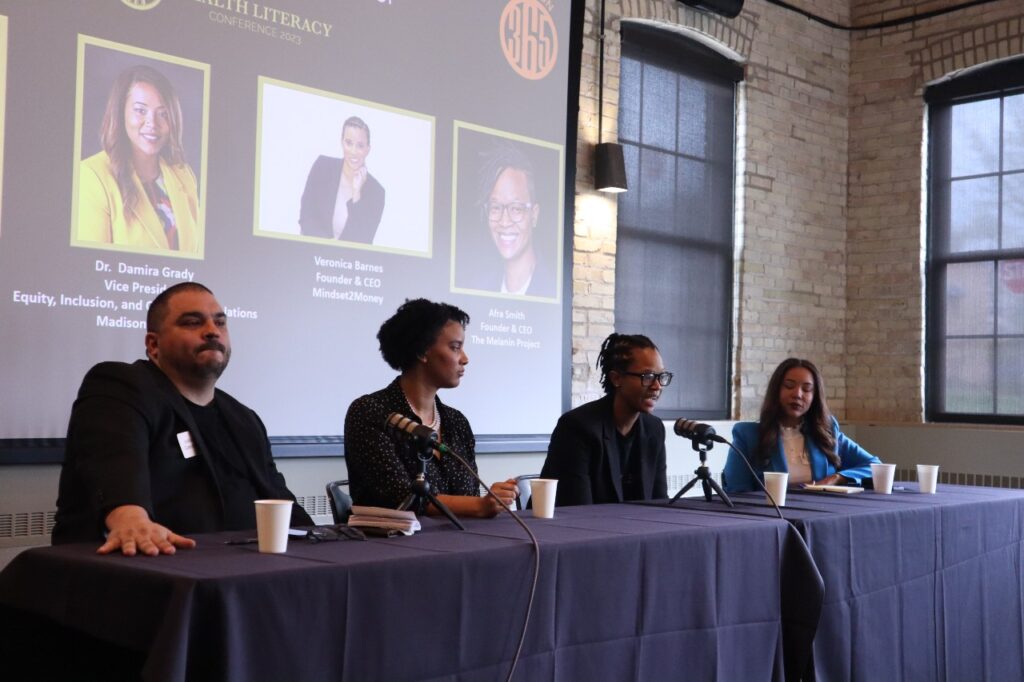
BIPOC financial literacy and long-term financial wellbeing was tackled at the inaugural Wealth Literacy Conference in Madison at the Goodman Center on April 29.
A first-of-its-kind event in Madison, the Wealth Literacy Conference looked to examine, change the narrative on and answer questions about financial literacy. Guest speakers and panelists came together to answer community questions on building wealth for a sold-out audience of about 120 people. The event was organized by Afra Smith of the Melanin Project and Veronica Barnes of Mindset2Money.
Blueprint365 was the media sponsor of the event.
The conference touched on lessons in financial wellness and planning, economic mobility, entrepreneurship, homeownership and many other finance topics from four speakers. The speakers included Dominque Pritchett of Beloved Wellness Center; Victor Patterson, a human resource professional; Denise Ali of Movin’ Out Inc.; and Valeah Foy of Valeah Rae Coaching.
Barnes started the day off by speaking on the pillars of the event, action, mindset and community to push the message of what the Wealth Literacy Conference aimed to achieve in its first-ever event.
Followed by Smith and kicking off the group of speakers, Pritchett took the stage to talk about the willingness to risk who you are today to become who you want to be in the future. Pritchett drew on her own experiences as a small business owner and as a licensed therapist. She highlighted the risks and uncomfortable nature of risk in pursuing a better tomorrow.
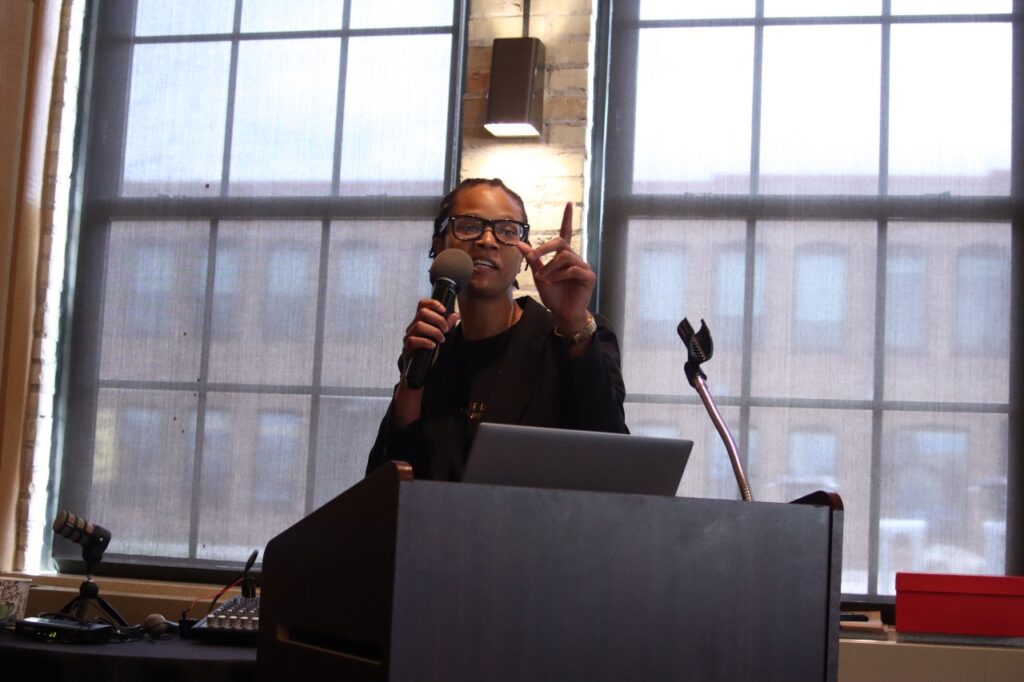
After a brief break Patterson went up to speak on the power of knowledge. Patterson’s speech was centered on literature and a focus on the disparities of financial well being caused by the racial wealth gap. The hot point of his speech was that knowledge is power that creates opportunity which then creates wealth.
“Knowledge is power. Power is always an opportunity to reach the financial stability that leads to love,” said Patterson.
Ali gave a more practical talk on how to budget, save, invest and manage debt. Her time in community development and her current position as an executive in real estate as chief financial officer of Movin’ Out Inc. helped guide her conversation with attendees that were looking for realistic solutions to manage their money.
“My goal is really to give you all some tangible strategies, some tangible information on budgeting, and… help you to move from one place to the other,” said Ali. “The purpose of this is really to talk about the rewards and the consequences of the choices that we’re making. It’s priceless for us to empower our vision of wealth, and it is priceless for us to empower our wellness. So let’s just talk about budgeting, what that really means.”
Speakers made way for a panel-based discussion on a variety of topics from AI, financial wellbeing, the racial wealth gap and steps that could be taken to pursue wealth. Panelists included Smith and Barnes as well as Common Wealth Development executive director Justice Castaneda and Madison College Vice President Dr. Damira Grady. The panel was moderated by Stephanie Díaz de León, 365 Media Foundation Director of Outreach and Engagement and cohost of the daily “It’s Only 10 Minutes” podcast.
“I think the financial literacy conversation is another one of those things that we need… so we need literacy fluency and mastery,” said Castañeda.
Castañeda and Grady both drew on their time working with students about financial literacy to paint the realities of the gap in knowledge on financial literacy and the lack of resources built for BIPOC communities. Castañeda recalled a story on a flawed program he ran in California that was meant to provide a stipend to low-income students.
The students were given a card with $25. The ATM that would allow them to draw out money would charge the student a fee that would leave them with only $20. He realized that the program he was a part of essentially funded a bank on the backs of students.
The last speaker of the event rounded out the mental hurdles in achieving wealth literacy. Valeah Foy of Valeah Coaching spoke on the limits people place on themselves and how to monitor their growth. She constantly engaged the crowd and gave away free sessions to her coaching.
Attendees of the conference were happy with the topics covered at the first Wealth Literacy Conference. Attendees like Lonnie Richardson and Michael Barnes felt like they had their mindset changed by the speakers.
“I feel like the event was very insightful. I learned a lot of things as far as staying focused on the path that I want to follow. How to balance and… harmonize with myself and not always depend on other people to motivate me, but to stay motivated within myself,” said Richardson.
Barnes felt as if he was provided the tools necessary to start investing.
To continue and expand the impact of the conference, organizers have assembled a Community Resource Guide with information and resources on home ownership, financial wellness, entrepreneurship and mental wellness. It is available for free download at this link.

